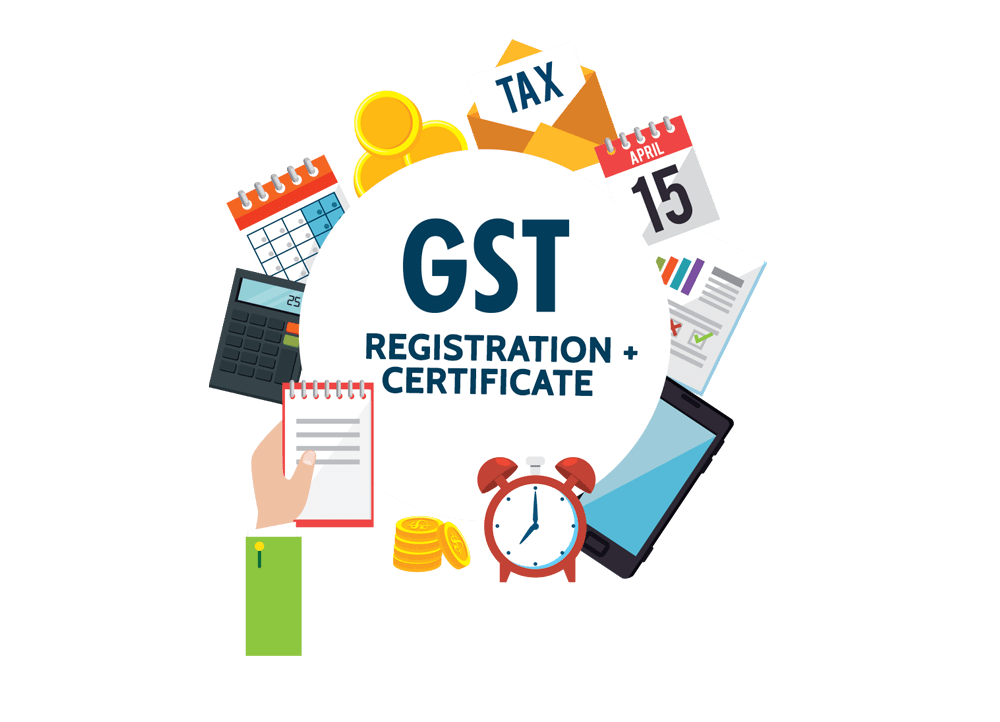Grasping GST Registration: Necessary Actions to Ensure Governing Conformity and Organization Development
Browsing the world of Goods and Provider Tax Obligation (GST) registration can be a critical step for businesses aiming to keep conformity and foster development. The elaborate procedure of signing up for GST demands a keen understanding of the vital actions included, from comprehending the essential principles of GST to meticulously preparing the required documentation. Nonetheless, past just checking off the governing checkboxes, grasping GST registration opens up a world of possibilities for companies to tactically take advantage of this tax framework to propel their development. Comprehending the nuances of GST enrollment is not simply a bureaucratic necessity however a tactical move that can form the trajectory of a service towards lasting success.
Comprehending GST Fundamentals
Recognizing the basics of Product and Provider Tax (GST) is necessary for businesses to navigate the complexities of tax obligation conformity and financial administration properly. GST is a value-added tax levied on the supply of products and solutions in India, intending to create a unified tax system across the country. Singapore GST Registration. Under GST, services require to register and obtain a distinct GSTIN (Product and Provider Tax Obligation Identification Number) to be compliant with the law

Preparing Necessary Papers
To make certain conformity with GST enrollment needs, businesses should gather and organize the needed papers for the application process efficiently. The vital papers generally required for GST enrollment consist of proof of organization enrollment or unification, frying pan card of the address, service and identification proofs of promoters, pictures, financial institution declarations, and proof of address of the place of business. In addition, organizations might need to offer details of accredited signatures, service activities, and turnover. It is crucial to make certain that all papers are precise, up to date, and fulfill the requirements defined by the tax authorities to avoid hold-ups or denials in the registration process.
Organizing these files in an organized manner can enhance the application procedure and demonstrate the service's dedication to governing conformity. Services need to maintain both electronic and physical copies of these papers for very easy access and recommendation. By preparing the essential documents carefully, organizations can expedite their GST registration procedure and concentrate on their core operations with the assurance of regulative conformity.
Online Enrollment Refine
Begin the GST registration process by browsing to the main online website assigned for company registration. Once the account is established up, you can continue with filling up out the GST registration application form by entering the needed service info, including business turn over, type, and address information.

Conformity and Reporting Commitments
Upon successful registration on the GSTN website and conclusion of the needed paperwork, businesses imp source need to comply with rigorous compliance and reporting obligations to make sure regulatory adherence and functional transparency. Conformity requirements under GST required accurate and prompt filing of different returns, such as GSTR-1 for outward products, GSTR-3B for monthly recap returns, and yearly returns like GSTR-9. Furthermore, organizations need to integrate their sales and purchase information through GSTR-2A and GSTR-2B to insurance claim input tax credit ratings appropriately.
Maintaining appropriate documents of invoices, accounting files, and various other relevant data is critical for GST compliance. Regular audits and analyses by tax authorities require organizations to have meticulous paperwork and reporting systems in position. Any inconsistencies or non-compliance can cause fines, fines, or perhaps suspension of GST registration.
To enhance conformity procedures, services can utilize GST compliance software application that automates return settlement, conformity, and filing tracking. Staying upgraded with regulative modifications and looking for specialist suggestions when required can further enhance compliance efforts and guarantee smooth operations within the GST framework.
Leveraging GST for Service Growth
One essential benefit of GST is the input tax credit scores device, which enables organizations to declare credit scores for tax obligations paid on inputs. Additionally, GST advertises openness and liability in the tax system, which can assist businesses develop trust fund with customers and companions.
In addition, GST registration can likewise open new markets for businesses. Being GST-compliant can boost reliability and make it less complicated to expand operations throughout state boundaries. This not only enhances market reach however additionally fosters a competitive side in the industry. By lining up with GST laws, businesses can adapt to changing market dynamics and stay in advance of the competitors. Basically, leveraging GST for company growth includes calculated preparation, reliable conformity, and a progressive strategy to economic management.
Verdict
To conclude, understanding GST enrollment is essential for ensuring governing conformity and helping with company growth. By understanding the basics of GST, preparing necessary records, completing the online enrollment procedure, and meeting compliance and reporting obligations, companies can leverage GST to their benefit. It is crucial for companies to adhere to the regulations and utilize GST as a tool visit this page for increasing their procedures and staying affordable out there.
Navigating the world of Product and Services Tax Obligation (GST) registration can be a pivotal action for companies aiming to preserve compliance and foster development. The essential records normally needed for GST enrollment include evidence of site web company enrollment or consolidation, Frying pan card of the service, address and identity evidence of marketers, photos, financial institution statements, and evidence of address of the area of company.Start the GST registration process by navigating to the main online portal assigned for organization registration. As soon as the account is set up, you can proceed with loading out the GST enrollment application form by going into the necessary company details, consisting of service type, address, and turn over details.
By recognizing the basics of GST, preparing required papers, finishing the online registration process, and satisfying conformity and reporting obligations, companies can take advantage of GST to their benefit.